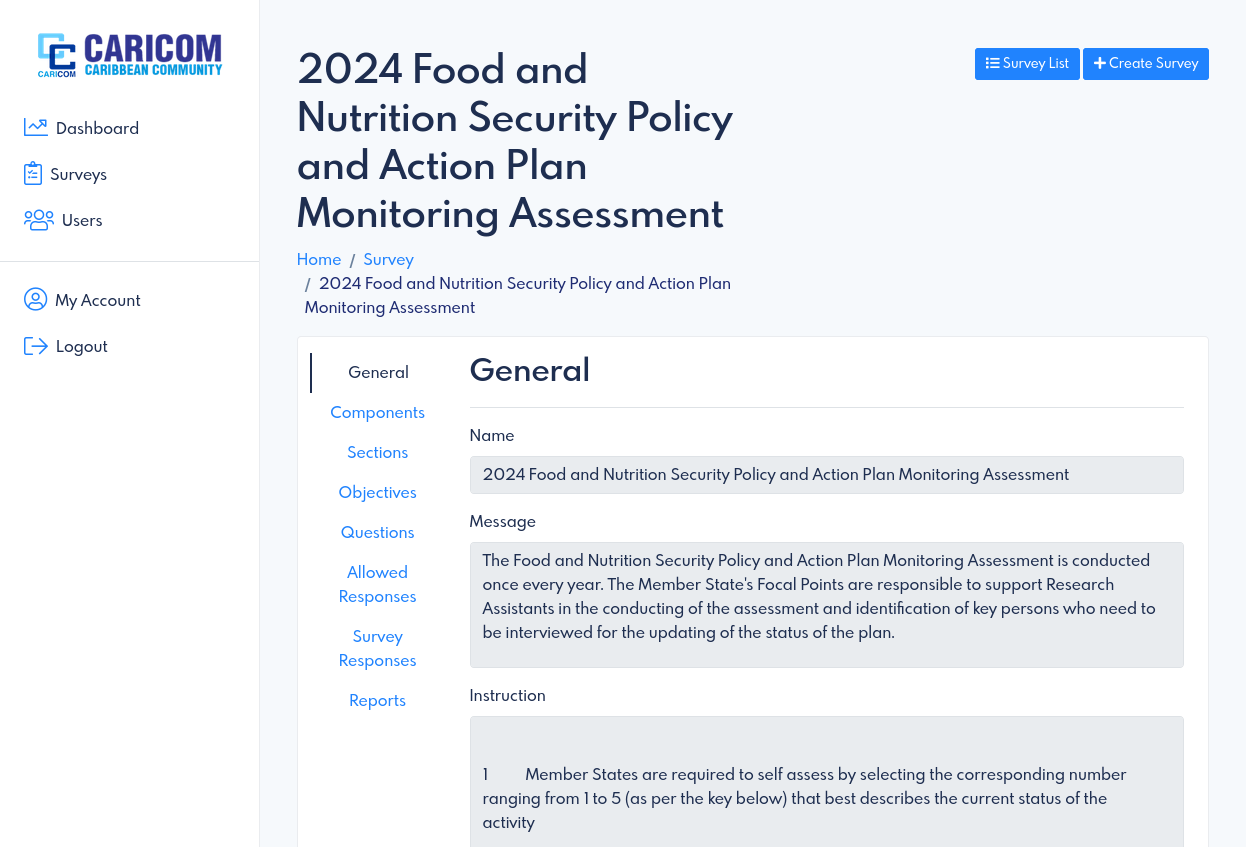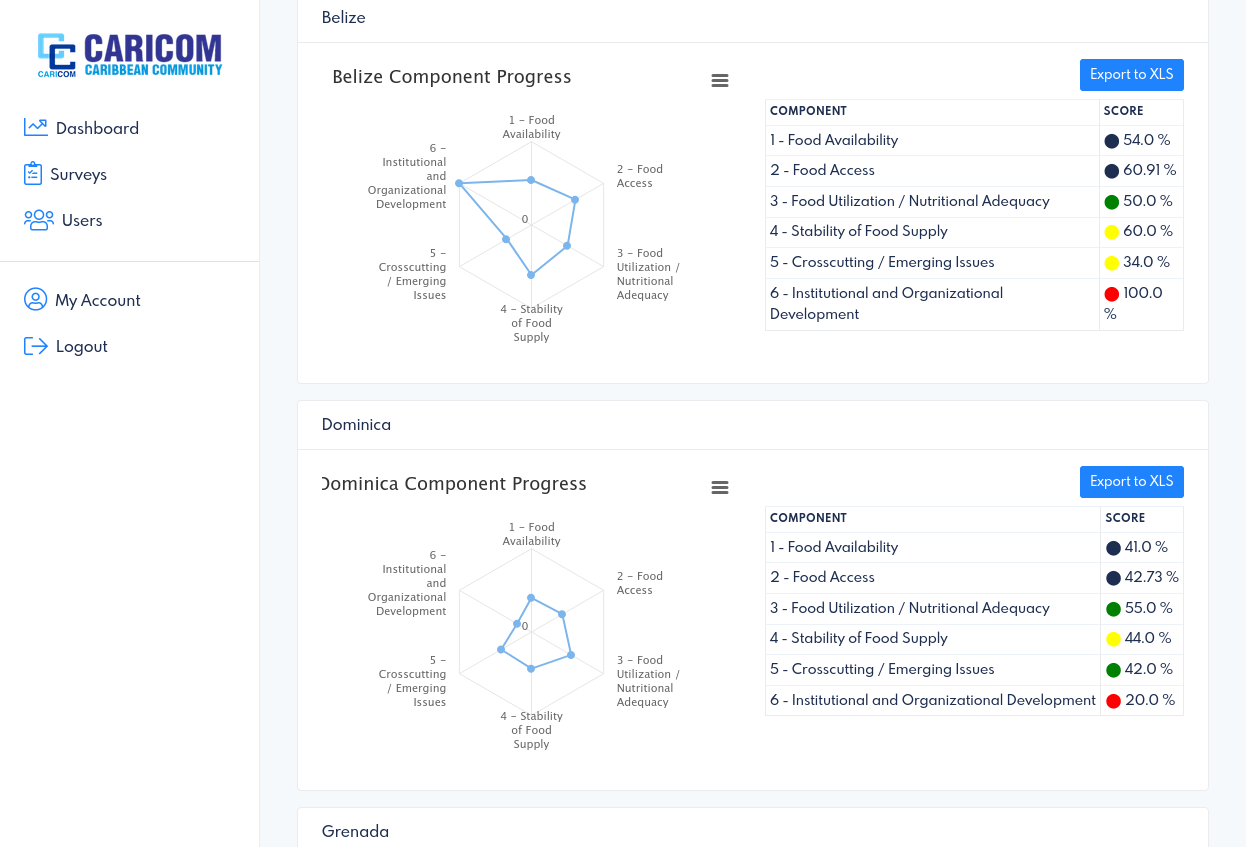Case Study: CARICOM FNS Tool
CARICOM Food and Nutrition Security Reporting System
Project Overview
The Caribbean Community (CARICOM) sought a robust system to track and report on food security issues across its member countries. The goal was to create a platform that could gather data on food availability, monitor supply trends, and identify emerging nutrition issues affecting the region. As the sole developer for this project, I designed and implemented a solution that includes key modules such as a Survey Designer for data collection, a Country Portal for country-specific access, and a Reporting module for generating insights. This system enables CARICOM to make data-driven decisions to address food security challenges in the Caribbean.
The Challenge
CARICOM faced challenges in monitoring food security across its diverse member countries. With no centralized platform to collect, analyze, and report on food availability and emerging issues, there was limited visibility into regional food security trends. The need for a system that could standardize data collection, enable real-time reporting, and facilitate collaboration between countries was critical to address these challenges and ensure the timely distribution of resources.
The Approach & Solution
To address CARICOM’s needs, I designed and developed a tailored system built on Grails for the backend and Bootstrap for the frontend. The system consisted of the following key modules:
- Survey Designer: This module allowed CARICOM and member countries to design and distribute surveys for data collection, enabling accurate tracking of food availability, supply, and emerging nutrition issues across the region.
- Country Portal: Each member country had access to a secure portal where they could enter data, monitor their own food security status, and track national progress. The portal enabled seamless data entry and management from local stakeholders.
- Reporting: A powerful reporting module that generated real-time insights from collected data, enabling CARICOM to quickly identify trends, gaps in food security, and regions needing assistance.
The Results
The implementation of the Food and Nutrition Reporting System led to significant improvements in data collection, reporting, and regional collaboration. The results can be broken down into four key pillars of success:
The successful deployment of the Food and Nutrition Reporting System has greatly enhanced CARICOM’s ability to monitor food security across the Caribbean. By automating data collection, streamlining reporting, and fostering collaboration among member countries, the system has positioned CARICOM to respond more effectively to food security challenges in the region. I am proud to have contributed to this important project and look forward to its continued impact on the region's ability to manage food and nutrition issues.


